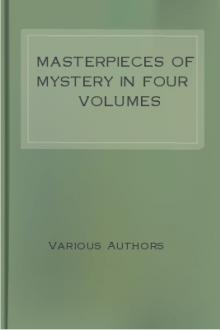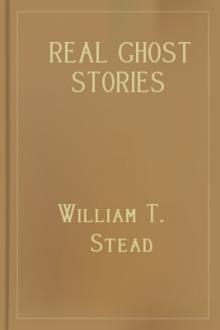Varney the Vampire; Or, the Feast of Blood by Prest and Rymer (ereader iphone .txt) 📗

- Author: Prest and Rymer
Book online «Varney the Vampire; Or, the Feast of Blood by Prest and Rymer (ereader iphone .txt) 📗». Author Prest and Rymer
"Yes, I hear," said Charles.
"For some reason," added Marchdale, in a tone of emotion, "what I say seems to fall always badly upon Mr. Holland's ear. I know not why; but if it will give him any satisfaction, I will leave Bannerworth Hall to-night."
"No, no, no," said Henry; "for the love of Heaven, do not let us quarrel."
"Hear, hear," cried the admiral. "We can never fight the enemy well if the ship's crew are on bad terms. Come now, you Charles, this appears to be an honest, gentlemanly fellow—give him your hand."
"If Mr. Charles Holland," said Marchdale, "knows aught to my prejudice in any way, however slight, I here beg of him to declare it at once, and openly."
"I cannot assert that I do," said Charles.
"Then what the deuce do you make yourself so disagreeable for, eh?" cried the admiral.
"One cannot help one's impression and feelings," said Charles; "but I am willing to take Mr. Marchdale's hand."
"And I yours, young sir," said Marchdale, "in all sincerity of spirit, and with good will towards you."
They shook hands; but it required no conjuror to perceive that it was not done willingly or cordially. It was a handshaking of that character which seemed to imply on each side, "I don't like you, but I don't know positively any harm of you."
"There now," said the admiral, "that's better."
"Now, let us hold counsel about this Varney," said Henry. "Come to the parlour all of you, and we will endeavour to come to some decided arrangement."
"Do not weep, mother," said Flora. "All may yet be well. We will leave this place."
"We will consider that question, Flora," said Henry; "and believe me your wishes will go a long way with all of us, as you may well suppose they always would."
They left Mrs. Bannerworth with Flora, and proceeded to the small oaken parlour, in which were the elaborate and beautiful carvings which have been before mentioned.
Henry's countenance, perhaps, wore the most determined expression of all. He appeared now as if he had thoroughly made up his mind to do something which should have a decided tendency to put a stop to the terrible scenes which were now day by day taking place beneath that roof.
Charles Holland looked serious and thoughtful, as if he were revolving some course of action in his mind concerning which he was not quite clear.
Mr. Marchdale was more sad and depressed, to all appearance, than any of them.
As for the admiral, he was evidently in a state of amazement, and knew not what to think. He was anxious to do something, and yet what that was to be he had not the most remote idea, any more than as if he was not at all cognisant of any of those circumstances, every one of which was so completely out of the line of his former life and experience.
George had gone to call on Mr. Chillingworth, so he was not present at the first part of this serious council of war.
CHAPTER XXII. THE CONSULTATION.—THE DETERMINATION TO LEAVE THE HALL.This was certainly the most seriously reasonable meeting which had been held at Bannerworth Hall on the subject of the much dreaded vampyre. The absolute necessity for doing something of a decisive character was abundantly apparent, and when Henry promised Flora that her earnest wish to leave the house should not be forgotten as an element in the discussion which was about to ensue, it was with a rapidly growing feeling on his own part, to the effect that that house, associated even as it was with many endearing recollections, was no home for him.
Hence he was the more inclined to propose a departure from the Hall if it could possibly be arranged satisfactorily in a pecuniary point of view. The pecuniary point of view, however, in which Henry was compelled to look at the subject, was an important and a troublesome one.
We have already hinted at the very peculiar state of the finances of the family; and, in fact, although the income derivable from various sources ought to have been amply sufficient to provide Henry, and those who were dependent upon him, with a respectable livelihood, yet it was nearly all swallowed up by the payment of regular instalments upon family debts incurred by his father. And the creditors took great credit to themselves that they allowed of such an arrangement, instead of sweeping off all before them, and leaving the family to starve.
The question, therefore, or, at all events, one of the questions, now was, how far would a departure from the Hall of him, Henry, and the other branches of the family, act upon that arrangement?
During a very few minutes' consideration, Henry, with the frank and candid disposition which was so strong a characteristic of his character, made up his mind to explain all this fully to Charles Holland and his uncle.
When once he formed such a determination he was not likely to be slow in carrying it into effect, and no sooner, then, were the whole of them seated in the small oaken parlour than he made an explicit statement of his circumstances.
"But," said Mr. Marchdale, when he had done, "I cannot see what right your creditors have to complain of where you live, so long as you perform your contract to them."
"True; but they always expected me, I knew, to remain at the Hall, and if they chose, why, of course, at any time, they could sell off the whole property for what it would fetch, and pay themselves as far as the proceeds would go. At all events, I am quite certain there could be nothing at all left for me."
"I cannot imagine," added Mr. Marchdale, "that any men could be so unreasonable."
"It is scarcely to be borne," remarked Charles Holland, with more impatience than he usually displayed, "that a whole family are to be put to the necessity of leaving their home for no other reason than the being pestered by such a neighbour as Sir Francis Varney. It makes one impatient and angry to reflect upon such a state of things."
"And yet they are lamentably true," said Henry. "What can we do?"
"Surely there must be some sort of remedy."
"There is but one that I can imagine, and that is one we all alike revolt from. We might kill him."
"That is out of the question."
"Of course my impression is that he bears the same name really as myself, and that he is my ancestor, from whom was painted the portrait on the panel."
"Have circumstances really so far pressed upon you," said Charles Holland, "as at length to convince you that this man is really the horrible creature we surmise he may be?"
"Dare we longer doubt it?" cried Henry, in a tone of excitement. "He is the vampyre."
"I'll be hanged if I believe it," said Admiral Bell! "Stuff and nonsense! Vampyre, indeed! Bother the vampyre."
"Sir," said Henry, "you have not had brought before you, painfully, as we have, all the circumstances upon which we, in a manner, feel compelled to found this horrible belief. At first incredulity was a natural thing. We had no idea that ever we could be brought to believe in such a thing."
"That is the case," added Marchdale. "But, step by step, we have been driven from utter disbelief in this phenomenon to a trembling conviction that it must be true."
"Unless we admit that, simultaneously, the senses of a number of persons have been deceived."
"That is scarcely possible."
"Then do you mean really to say there are such fish?" said the admiral.
"We think so."
"Well, I'm d——d! I have heard all sorts of yarns about what fellows have seen in one ocean and another; but this does beat them all to nothing."
"It is monstrous," exclaimed Charles.
There was a pause of some few moments' duration, and then Mr. Marchdale said, in a low voice,—
"Perhaps I ought not to propose any course of action until you, Henry, have yourself done so; but even at the risk of being presumptuous, I will say that I am firmly of opinion you ought to leave the Hall."
"I am inclined to think so, too," said Henry.
"But the creditors?" interposed Charles.
"I think they might be consulted on the matter beforehand," added Marchdale, "when no doubt they would acquiesce in an arrangement which could do them no harm."
"Certainly, no harm," said Henry, "for I cannot take the estate with me, as they well know."
"Precisely. If you do not like to sell it, you can let it."
"To whom?"
"Why, under





Comments (0)